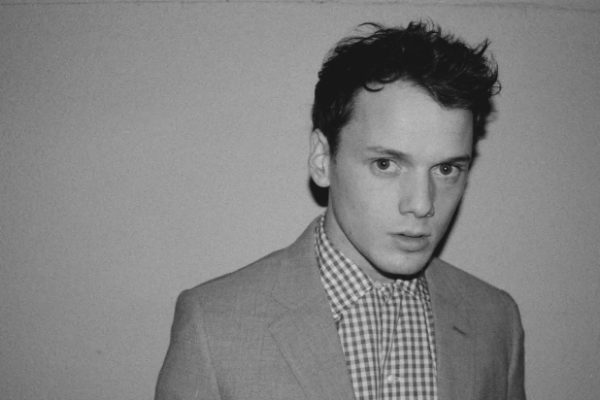Film Review: “Love, Antosha” — A Poignant Tribute to Actor Anton Yelchin
By Gerald Peary
This tender documentary makes an airtight case that cinema has lost a very special person.
Love, Antosha, directed and produced by Garret Price. Screening at Kendall Square Cinema, Cambridge, MA.

The late actor Anton Yelchin, the subject of “Love, Antosha.”
Love, Antosha isn’t exactly a box-office-friendly title, so I was one of two people in the audience for this loving, tender documentary biography of actor Anton Yelchin, who died in a macabre accident at age 27 in 2016. With him outside of the vehicle, his Jeep went into reverse and pinned him against a gate.
I had a conversation with the other attendee at the Kendall Square screening, a woman in her 70s. We both really liked the film, and she had a good take on it: “It’s very sad, and I hope his death was instant. But Anton was self-actualized and did so much more in his short life than most of us ever accomplish.”
How true. He acted in almost 70 movies and television shows. He played an impressive acoustic guitar, specializing in country blues, but also was in an alternative rock band, the Hammerheads. He was a skilled, edgy photographer, specializing in shooting freaky people he’s found on Craig’s List: part Nan Goldin, part Joel Peter Witkin.
He was an avid reader, and taught himself film history, graduating from Arnold Schwarzenegger flicks to a knowledge of Russian silent cinema, the French New Wave, and esoteric art-house filmmakers from Romania and Thailand. What other young person in cinema would have a diary entry devoted to John Ford’s 1917 western, Straight Shooting? His favorite film of all time was Taxi Driver. When Yechlin died, he was about to direct a film based on his own screenplay: Travis, after De Niro’s Travis Bickle.
First-time filmmaker-editor Garret Price decided to wait until the final few minutes of Love, Antosha for the jolt of Yelchin’s death. Anton’s story is told not in flashback but chronologically. His parents, Viktor and Irina Yelchin, were a famous team of figure skaters in Russian, but left for America because of growing anti-Semitism in their native country. They settled in the San Fernando Valley and had a child, one child, Anton, on whom they doted. Growing up, he was charming, exuberant, and, as seen in home movies, had the acting bug from the earliest age. He could dance and clown, he could imitate Schwarzenegger and he did a mean, clipped British accent a la David Niven. He also made clever little narrative films starring himself and neighborhood friends.
Whatever Anton wanted to do, his parents encouraged, including auditioning as a pre-teen for TV and movie roles. But unlike many thespian children, Anton was remarkably grounded. Seemingly everyone who worked with him cherished him. A good kid, and deeply devoted to his parents. He loved his father, Viktor, but adored his mother. He would call Irina every day on the telephone and send her letters telling her how much he appreciated her. These letters were always signed, “Love, Antosha.”
Yes, his thespian peers were crazy about him, and the posthumous remembrances here, all positive, ring true. Kristen Stewart was his girlfriend when he was 16, she 14, and he intimidated her because he was so well read. She pledged after they parted to try to catch up to him. He acted with Jennifer Lawrence, and she credits him with expanding her range. Before Anton, she would read a line a certain way and keep doing it that way every take. She learned from Anton to loosen up, improvise.
Yelchin did seem to have a wild period in his early 20s, when he took those weirdo photographs, when he partied hard and went through girlfriends. But he was stopped from too much crazy living by his secret health problem. He had to be mindful because he had cystic fibrosis. One director cut out all the takes in which Yelchin coughed, not being informed of the medical reason.
Was Yelchin a great actor? Someone else can answer that, not me. I’ve seen little of his oeuvre, neither his pile of action films, including a couple of Star Treks, nor most of his indie work. There were two of his movies which I do embrace: Porto, a moody, self-conscious art film set in Europe, and Thoroughbreds, a gallows humor murder comedy. But this documentary makes an airtight case that cinema has lost a very special person. And his poor parents! They’ve built him a statue in the Hollywood Forever cemetery, where he is buried, and they’ve started the Anton Yelchin Fibrosis Clinic in his name. The last shot of Love, Antosha shows Viktor and Irina launching heart-shaped balloons into the air above Los Angeles, which they do every Saturday.
Gerald Peary is a Professor Emeritus at Suffolk University, Boston, curator of the Boston University Cinematheque, and the general editor of the “Conversations with Filmmakers” series from the University Press of Mississippi. A critic for the late Boston Phoenix, he is the author of nine books on cinema, writer-director of the documentaries For the Love of Movies: the Story of American Film Criticism and Archie’s Betty, and a featured actor in the 2013 independent narrative Computer Chess. His new feature documentary, The Rabbi Goes West, co-directed by Amy Geller, is playing at film festivals around the world.
